
You all know how much I love dogs. I’ve a love of most birds and animals. I’ve always added in animals to books when and where I can. Sometimes to set the scene, sometimes (as is often with a dog in a book) as a device to move along the plot or create a connection between characters. I couldn’t imagine The Little Book Café without Benji the spoiled Westie, or On a Falling Tide without Dolly the springer spaniel puppy. And where would everyone be in Janey Trelawney’s Year of Surprising Triumphs without Camilla the beautiful golden cocker?

In my historical novels I’ve even more scope to add non-human characters. In The Sea Glass Necklace bees, owls and robins feature. Bees were considered to be messengers between worlds, owls have a host of folklore attached and were the ancient Celtic symbol for wisdom and protection – something both Flavia and Juno needed. Robins have always been fondly regarded, particularly in Britain. They’re actually aggressive, territorial little birds but are more often seen as a sign a departed loved one is near when they hop onto your spade handle in the garden.
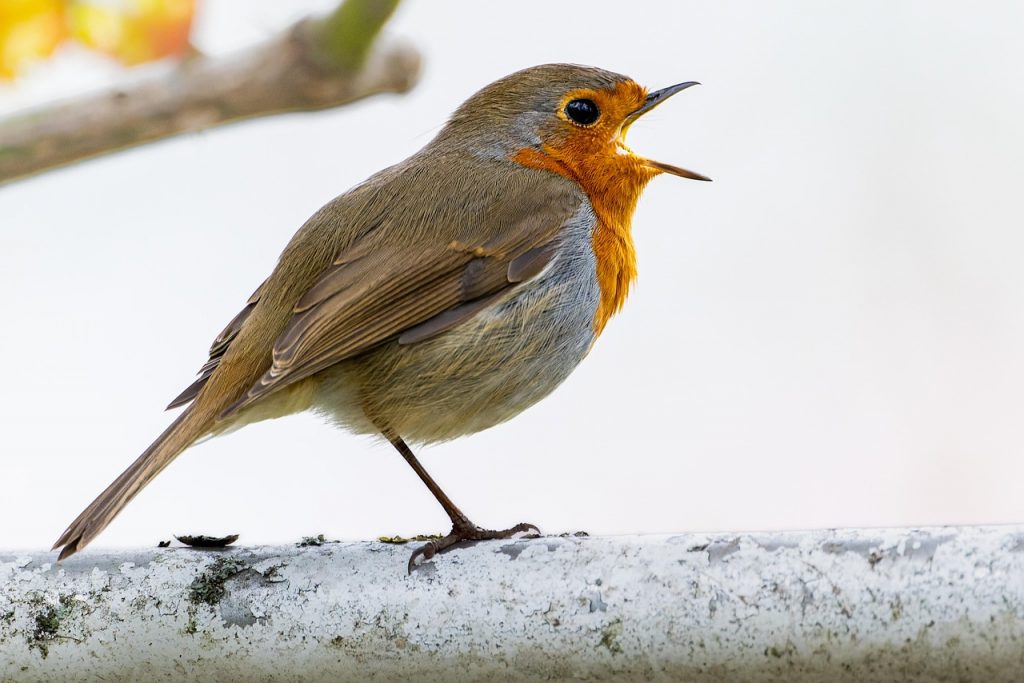
Magpies are less well thought of, at least in the UK. They have a wealth of folklore attached and I only scraped the surface when researching them for Magpie the book. Members of the highly intelligent Corvidae family of birds, they mate for life, are gregarious, puzzle solvers and gift givers – and are thought to mourn their dead. All this doesn’t seem to stop them being seen as harbingers of ill-fortune. We all know the rhyme, ‘One for Sorrow, Two for Joy’ but I’ve just come across this: ‘One for Sorrow, Two for Mirth. Three for a funeral and four for a Birth,’ (William John Thoms 1846).
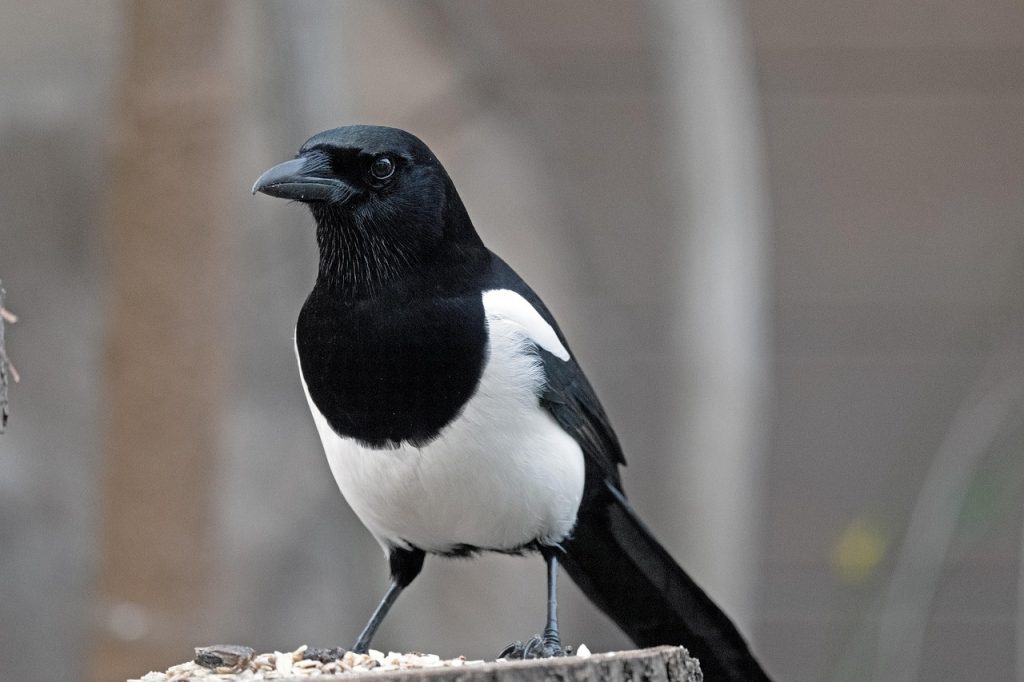
Superstitiously, without fail, I chorus, ‘Hello Mr Magpie, how’s the family?’ when coming across them although I refrain from spitting over my shoulder three times and crossing myself as folk used to do to ward off the evil they may bring.
Devon folklore has it they contain the souls of wicked and gossiping women (history has long had a hatred of women daring to speak out, please look up the Scold’s Bridle) and if a fisherman was to see a solitary magpie, it was sure to mean no catch that day. A magpie played a vital part in getting Temperance Lloyd, one of The Bideford Witches, convicted. One was thought to have taken the form of the Devil and flew into the house of her enemy. A detail which found its way in to Magpie. Some still believe if a magpie is seen near a window, death isn’t far behind.
It’s not all bad though. They can be prone to stealing shiny objects and one story goes a servant was saved from the guillotine by the revelation the thief was actually a magpie. Let’s hope the bird got away scot free. In China and Korea they are considered a sign of good luck and they’re the national bird of Bangladesh.
I holidayed in Portugal earlier in the year and spent a lot of time being amused by the ‘mischief’ of Portuguese magpies darting about in the hotel gardens. As we had a wonderful holiday, I took them as a good sign!
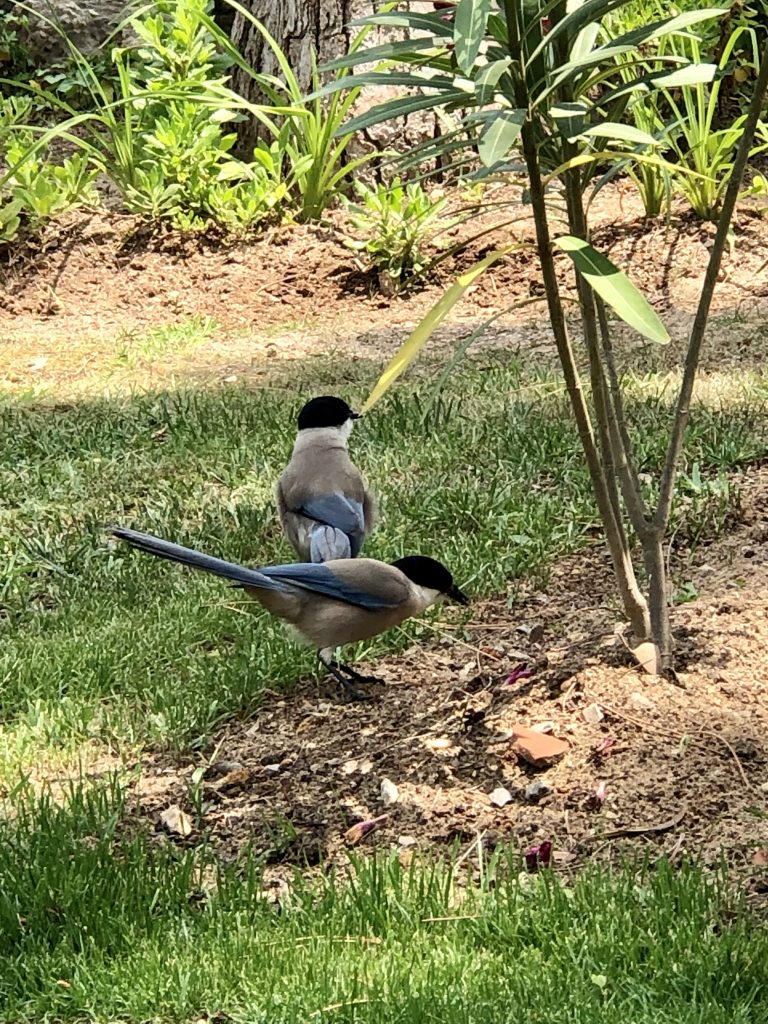
Must dash – a huge bumble bee has just flown through the study window while I was writing this! Wonder what message she’s brought? Probably telling you to buy the book!
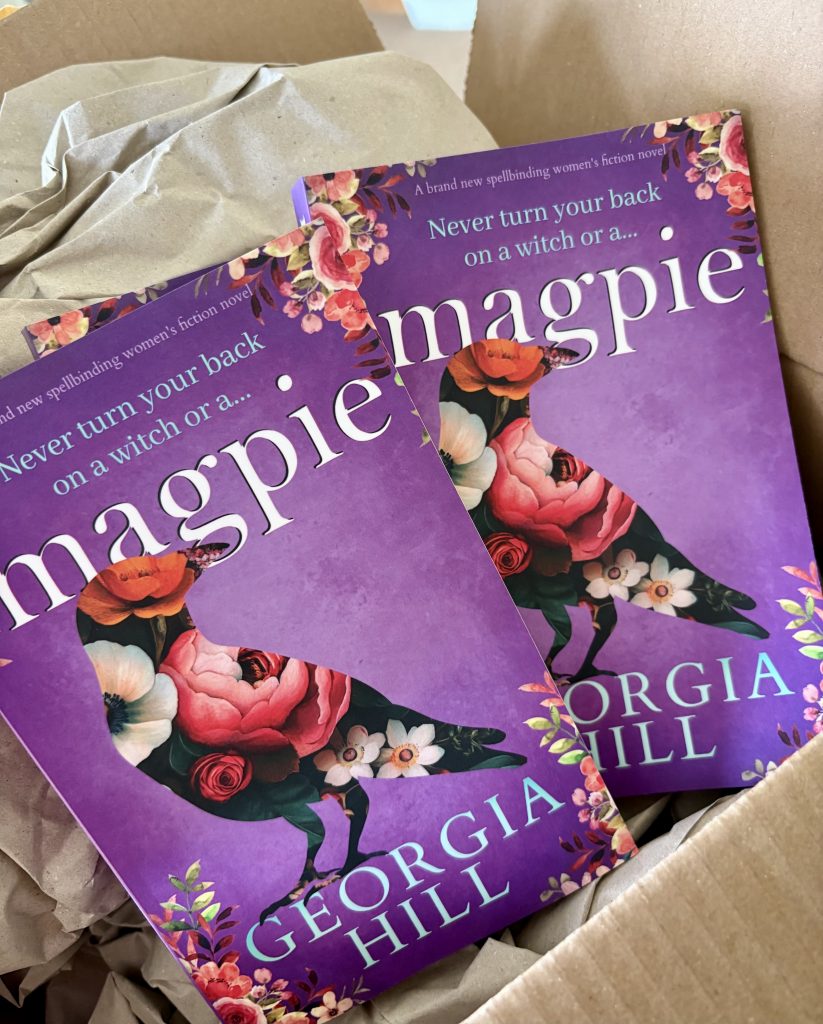
Love,
Georgia x

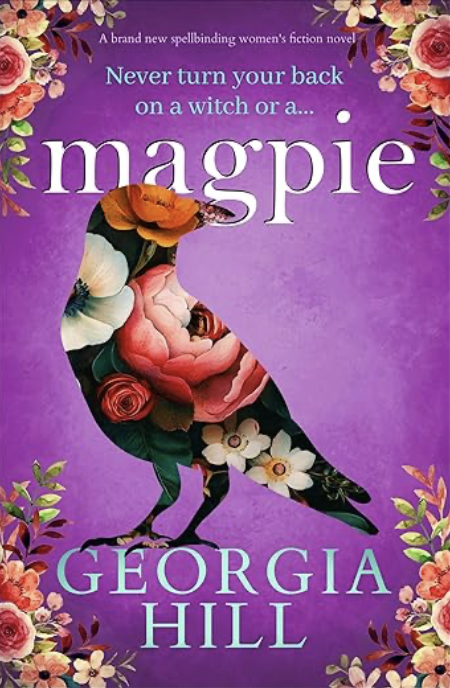
Good morning Georgia, I have never seen a single magpie in Montreal for the 40 +years I’ve lived here. They are well settled in Calgary, Alberta though.
My big dog Bear hated them they were forever picking at his tail whenever he went out. My daughter’s cat Bond, bird catcher extraordinaire, has a healthy respect for them and will go home. I don’t blame him they are huge here but I think very beautiful.
By the way my sister used to give me grief for reading the end of a book when I was a child, that made me giggle when I read that. Happy Thursday
Hi Suzanne! How lovely of you to comment. Not many magpies around here – too many herring gulls and crows (who have an uneasy and occasionally feisty relationship) Lots near where my mum lives. I find them fascinating and can’t work out why they’ve become such a fixture in superstition and belief. PS I’m also guilty of reading the end of a book. Once I know what’s happened, I can relax and enjoy the story. Dreadful habit